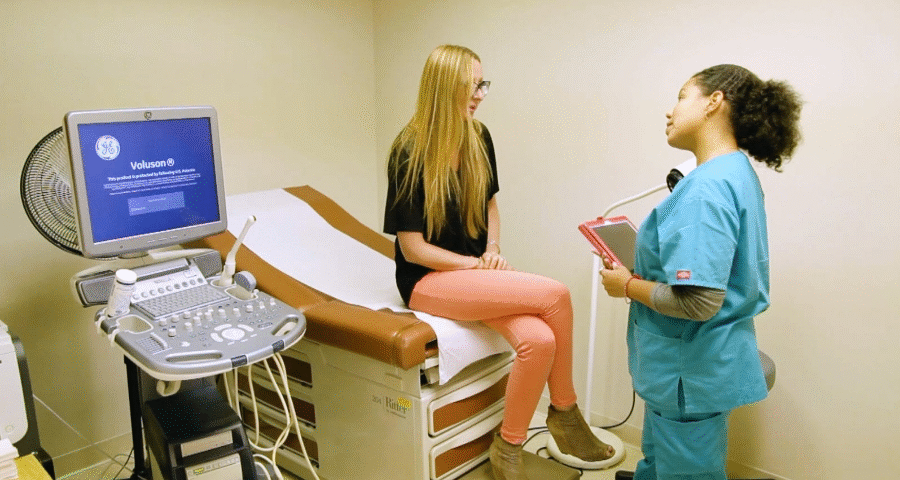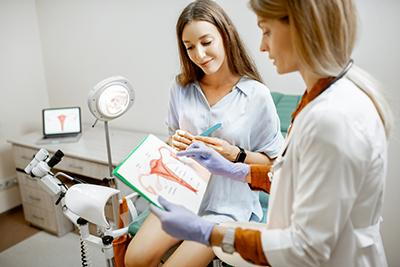
Workplace Programs to Improve General Health and Wellness
September 26, 2025
Gynecology Tips for Maintaining Reproductive Health Naturally
September 26, 2025
Taking care of women’s health goes far beyond eating well and staying active. Regular gynecology exams are one of the most important steps women can take to protect their overall health and well-being. These exams are not just routine check-ups—they are key to early detection of health problems that, if caught in time, can often be managed or even prevented. Many women tend to delay or avoid visiting a gynecologist unless they notice obvious symptoms, but waiting can lead to more serious complications later.
In this article, we will explore the importance of regular gynecology exams for early detection, the conditions they help identify, and how women of all ages can benefit from making these check-ups part of their routine healthcare.
What Is a Gynecology Exam?
A gynecology exam is a medical check-up that focuses on a woman’s reproductive system, including the uterus, ovaries, cervix, and breasts. These exams typically include a general health review, pelvic examination, Pap smear, breast exam, and sometimes blood tests or imaging studies if needed.
The purpose is not only to check for existing problems but also to detect potential issues before they become serious. By regularly visiting a gynecologist, women receive preventive care that helps them maintain reproductive health and overall wellness.
Why Early Detection Matters
Early detection means identifying health problems before they progress. Many gynecological conditions develop silently without showing obvious symptoms in the early stages. Regular exams help spot these conditions sooner, which can make treatment simpler, less invasive, and more effective.
For example:
- Cervical cancer can often be detected early through a Pap smear, sometimes even before it develops into cancer, during the precancerous stage.
- Ovarian cysts or tumors may be discovered during a routine pelvic exam before they cause pain or other complications.
- Sexually transmitted infections (STIs) can be identified early and treated before they spread or cause long-term issues like infertility.
Without early detection, these health concerns could go unnoticed until they become life-threatening.
Conditions Detected Through Gynecology Exams
Regular gynecology exams can detect a wide variety of health issues, including:
- Cervical cancer – Pap smears and HPV testing help identify abnormal cells that could lead to cancer.
- Breast abnormalities – Clinical breast exams can detect lumps or changes that might need further evaluation.
- Ovarian or uterine issues – Conditions like fibroids, cysts, or endometriosis can be found early.
- STIs – Routine screening helps prevent long-term complications like pelvic inflammatory disease.
- Menstrual disorders – Irregular or painful periods may signal hormonal imbalances or reproductive issues.
- Fertility concerns – Exams can reveal conditions that might affect conception later.
These routine screenings ensure that any abnormalities are caught early and treated appropriately.
The Role of Preventive Care in Women’s Health
Preventive care is about staying ahead of potential health problems. Just as regular dental check-ups help prevent cavities, gynecology exams help prevent serious reproductive and sexual health issues.
Some preventive steps during these visits may include:
- Vaccinations: Such as the HPV vaccine to reduce the risk of cervical cancer.
- Education: Discussions about safe sex, contraception, and family planning.
- Lifestyle advice: Recommendations on diet, exercise, and stress management.
This approach empowers women to take control of their health before problems arise.
At What Age Should Women Start Gynecology Exams?
The recommended age for starting regular gynecology visits varies depending on guidelines and individual health. Generally:
- Teens (13–15 years old): The first visit is often recommended during adolescence, especially if periods are irregular or painful. This initial visit may not include a pelvic exam but focuses on education.
- Young adults (21 years old): Pap smears typically begin at this age to screen for cervical cancer.
- Adults (30–65 years old): Pap smears combined with HPV testing every few years, along with regular pelvic and breast exams.
- After 65 years old: Screening may reduce in frequency if past results have been normal, but exams may still be necessary depending on health history.
These recommendations may vary, but the underlying message remains the same: regular check-ups are crucial.
How Often Should You Have a Gynecology Exam?
The frequency of visits depends on your age, risk factors, and medical history. For most women:
- Annually: A general gynecological check-up is encouraged.
- Pap smear every 3 years: For women aged 21–29, unless otherwise advised.
- Pap + HPV test every 5 years: For women aged 30–65, if results are normal.
- More frequent visits: If you have risk factors like family history of cancer, chronic conditions, or abnormal test results.
Even if Pap smears are not required every year, annual exams remain important for overall health.
Benefits Beyond Reproductive Health
Many women think gynecology exams are only about pregnancy, fertility, or sexual health. In reality, these visits go far beyond that. A gynecologist can also help with:
- Menopause management – Guidance on hormone changes, hot flashes, and bone health.
- Mental health support – Addressing the link between hormonal changes and mood.
- Chronic disease prevention – Helping identify conditions like diabetes or hypertension through routine checks.
This holistic approach ensures that women receive well-rounded healthcare.
Breaking the Stigma and Overcoming Fear
One reason women skip gynecology exams is fear, embarrassment, or cultural stigma. It’s important to remember that gynecologists are trained professionals who provide confidential and compassionate care. Talking openly with your doctor about symptoms, sexual activity, or concerns is key to receiving proper treatment.
Overcoming this hesitation can make a significant difference in catching issues early and maintaining long-term health.
Conclusion
The importance of regular gynecology exams for early detection cannot be overstated. These exams are not just about reproductive health—they are about preventing, detecting, and treating conditions that can impact a woman’s quality of life. By scheduling routine visits, women can catch potential problems early, receive preventive care, and gain peace of mind about their health.
In short, regular gynecology exams are one of the most powerful tools women have to protect their health at every stage of life.
FAQs
1. How often should I see a gynecologist if I feel completely healthy?
Even if you feel fine, it’s recommended to see a gynecologist once a year for preventive care and early detection of hidden issues.
2. Are Pap smears and pelvic exams the same thing?
No. A pelvic exam checks the overall health of the reproductive organs, while a Pap smear specifically screens for abnormal cervical cells.
3. Do older women still need gynecology exams after menopause?
Yes. Conditions like cervical cancer, ovarian issues, and breast health still require monitoring after menopause.
4. What should I expect during my first gynecology exam?
The first visit usually includes a general discussion, medical history review, and depending on age, may include a pelvic exam or Pap smear. It’s also a chance to ask questions about reproductive health.
5. Can lifestyle changes reduce the need for gynecology exams?
Healthy habits support overall wellness, but they cannot replace regular exams. Even women with excellent lifestyles should get checked regularly, as some conditions are genetic or develop silently.

